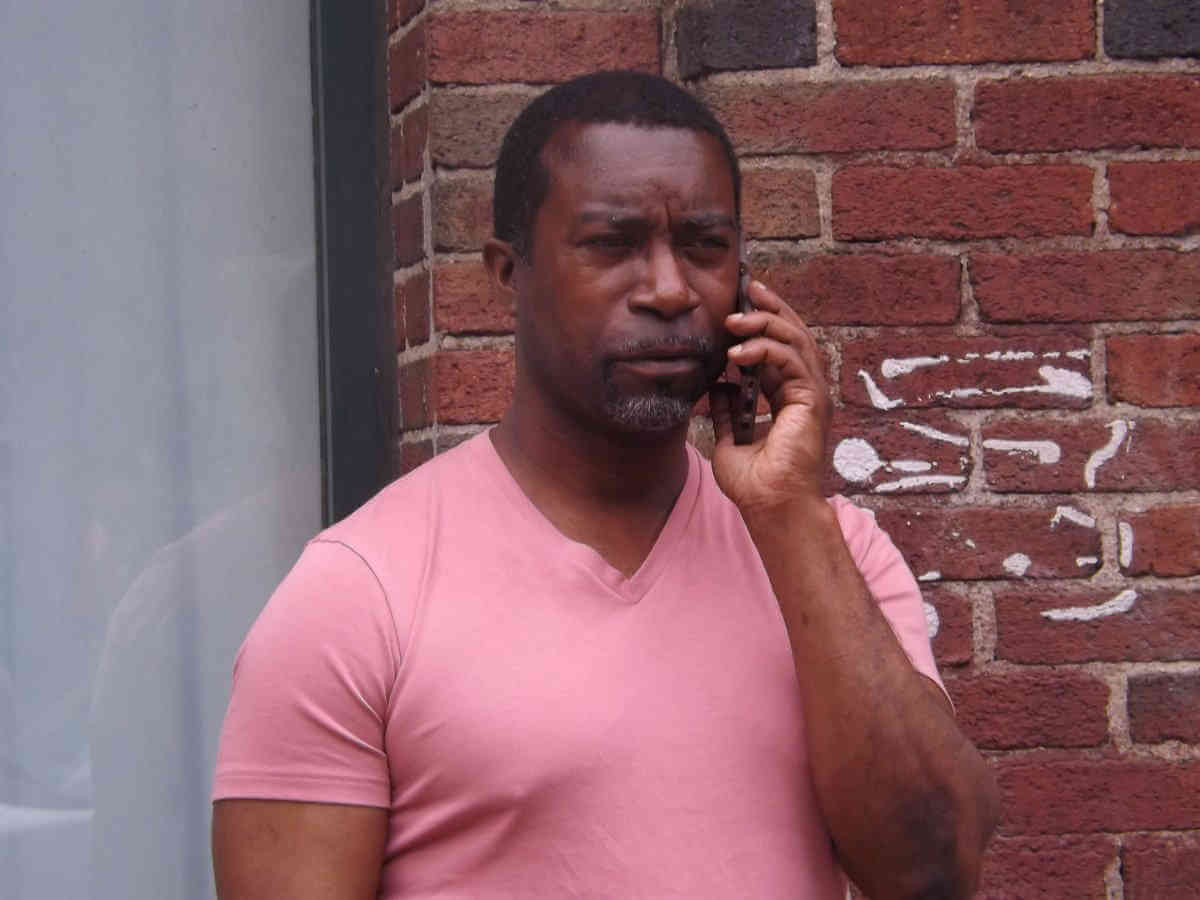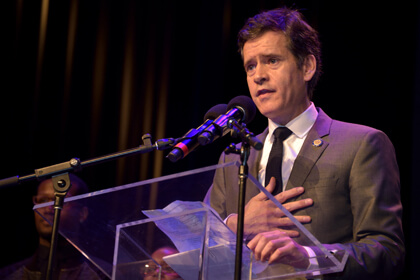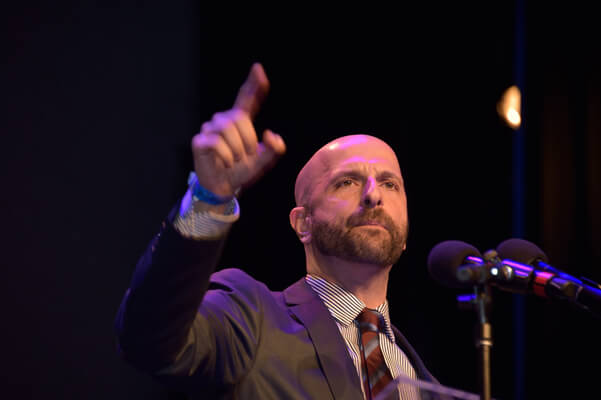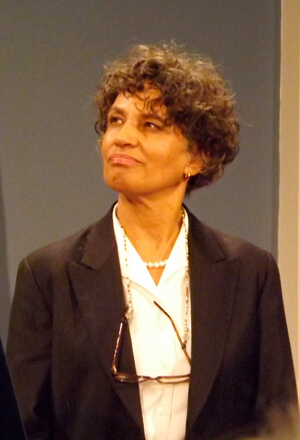A Brooklyn agency that was once at the forefront of addressing the health and HIV concerns of Black gay men has ceased operations while it raises funds to open a health clinic that will continue its mission of serving African-American gay and bisexual men.
“Gay Men of African Descent (GMAD) is implementing a plan to transform the delivery of its health and education services from a community-based organization to a community health center, generating its primary revenue from fee-for-service primary health and social support services,” Kevin McGruder, GMAD’s board secretary and treasurer, wrote in a statement.
Gay City News contacted McGruder, Vaughn Taylor-Akutagawa, the agency’s executive director, and other people who have some knowledge of GMAD’s operations after visiting GMAD’s offices on Atlantic Avenue on January 23 and being told by a building staffer that GMAD had moved out three or four months earlier. That staffer, who is not a GMAD employee, gave a Flatbush Avenue address for the agency’s new location. That address was for a doctor’s office.
In his statement, McGruder said GMAD left the Atlantic Avenue building at “the end of 2019, in order to reduce operating expenses” and that it was now using an “interim space.” The address for that space, which McGruder provided, had the same street number as the Flatbush Avenue address, but was in fact on Jefferson Avenue in Bedford-Stuyvesant, the site of the Siloam Presbyterian Church. Reached by phone, a staffer at the church said that GMAD has held a single meeting there.
McGruder lives in Ohio and teaches at Antioch College. Taylor-Akutagawa did not respond to an email sent to his GMAD address or to phone messages.
“A fundraising campaign will soon begin to finance the move to permanent office space in Brooklyn,” McGruder wrote. “We will be in touch when we are ready to launch the community health center. Thanks again for your interest.” In a later email, he added, “We’ll resume service delivery and meetings at the new location.”
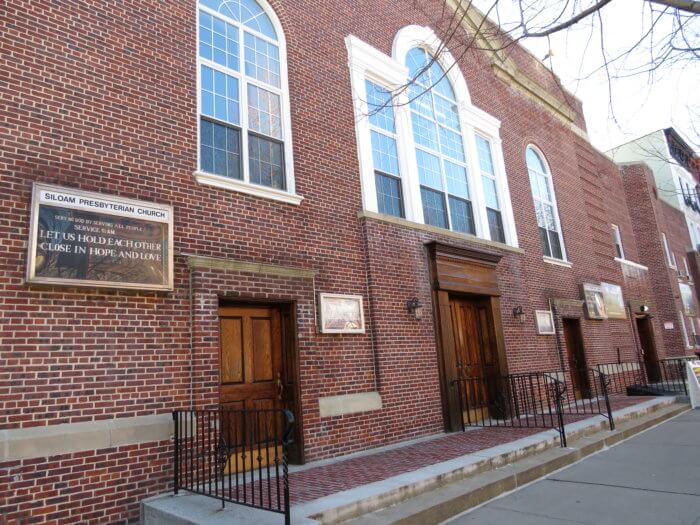
GMAD has not updated its website with a new address, but the site does have live links to fundraising appeals on gofundme.com and Snowball.
In June 2019, Gay City News visited GMAD’s Atlantic Avenue offices after being told that the agency was in financial trouble. At that time, Taylor-Akutagawa told Gay City News that GMAD would go on a summer hiatus and prepare to apply for an Article 31 license from New York State. An Article 31 license allows a provider to deliver “integrated outpatient services” for clients needing mental health or substance abuse assistance.
Founded in 1986, GMAD has been struggling with financial problems for nearly a decade. It reported $1.2 million in gifts, grants, and contributions in 2011. That fell to just under $392,000 in 2017. It ended its 2016 fiscal year with a deficit of $220,000 and its 2017 fiscal year with a deficit of $363,000.
Ultimately, GMAD fell victim to a healthcare industry that has been consolidating for years, including those providers that serve HIV-positive people and deliver HIV prevention services, and to city and state contracts that favor large institutions that can deliver services to large numbers of people.
While GMAD’s financial problems pre-date the launch of the Plan to End AIDS, its apparent demise comes as the proponents of that plan have been forced to alter their target for reducing new HIV infections per year. The plan, which launched in 2015, originally sought to get to 750 new HIV infections a year statewide by the end of 2020, with 600 0f those infections occurring in New York City.
The plan has been successful in getting HIV-positive people into treatment and getting HIV-negative white gay men to take pre-exposure prophylaxis (PrEP), but it has not been successful on these metrics with African-American and Latino gay and bisexual men. The continued higher numbers of new HIV infections among Black and Latino gay and bisexual men meant the 750 target will be missed. The state health department has not announced new targets for the city and state.
“If this was white, gay men, this never would have happened,” Gary English said about GMAD closing.
English is the founder and executive director of Get It, Get It, which launched two-and-a-half years ago with a $166,000 a year city contract to develop and deploy a curriculum that would get African-American gay and bisexual men onto PrEP and post-exposure prophylaxis (PEP). Both regimens use anti-HIV drugs in HIV-negative people to keep them uninfected. PEP and PrEP are highly effective when taken correctly. The Get It, Get It contract ran out at the end of 2019.
Black gay men in New York City have experienced higher rates of new HIV infections since the mid-1990s. The Giuliani administration and later the Bloomberg administration paid no attention to that demographic. Bloomberg significantly reduced HIV prevention funding during his 12 years in City Hall. The approval of Truvada for PrEP by the federal Food and Drug Administration in 2012 could have changed that.
“It’s a shame that we only have one Black gay agency that is run by Black gay men and we just lost our funding,” English said. “All I can say is it’s racism and not taking our community seriously.”

